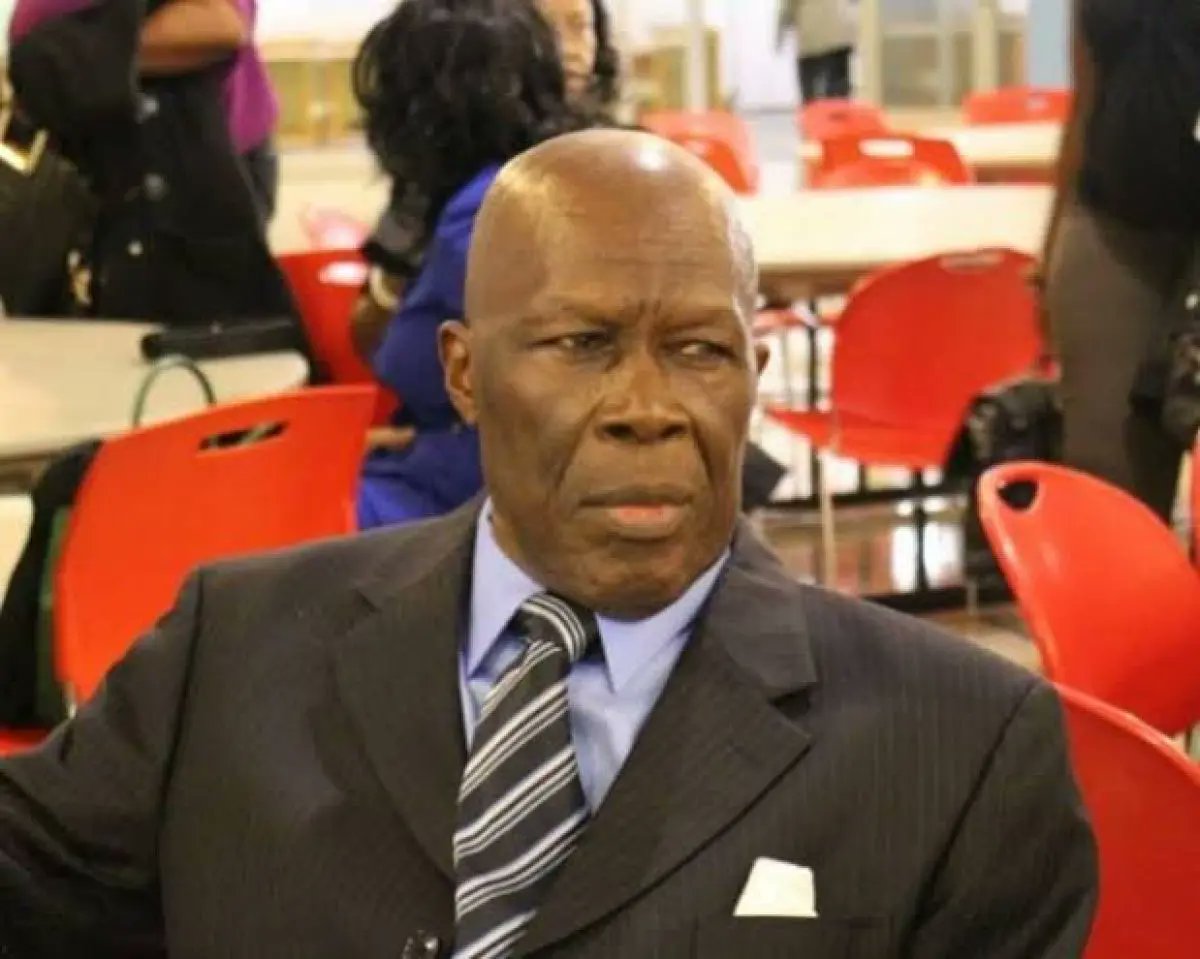Nigerian Senate Rejects Motion To Honour Late Prof. Humphrey Nwosu.
The Nigerian Senate has sparked debate after rejecting a motion to immortalise the late Professor Humphrey Nwosu, the former Chairman of the National Electoral Commission (NEC), who oversaw the historic but annulled June 12, 1993 election. The decision came during a plenary session on Wednesday, presided over by Deputy Senate President, Senator Jibrin Barau.
The motion was tabled by Senator Enyinnaya Abaribe, representing Abia South, who sought to pay tribute to Nwosu’s legacy. Abaribe invoked Orders 41 and 51 of the Senate Standing Order, which pertain to personal explanations, to argue for the recognition of Nwosu’s contributions to Nigeria’s democratic history. However, the proposal faced immediate resistance.
Senate Leader Michael Bamidele Opeyemi challenged the motion, asserting that the orders cited by Abaribe were inappropriate for the context. He argued that the plenary had moved beyond the point where such a privilege could be granted, effectively stalling the discussion. Earlier, Deputy Senate President Barau had expressed doubts about the motion’s approval, labelling it “controversial” before allowing Abaribe to speak.
Despite the pushback, Senator Yahaya Abubakar Abdullahi, representing Kebbi North, intervened, urging the chamber to permit Abaribe to present his case, even if the procedural order was misapplied. Abaribe, undeterred, pressed on, citing Order 1(b) of the Standing Order, which allows the Senate to regulate its procedures in cases not explicitly covered by existing rules. “We are not under a dictatorship, Mr President,” Abaribe declared passionately. “A Senator must be given a chance to make a personal explanation.”
In response, Barau, a seasoned legislator, referenced Order 42, which permits personal explanations only with the Senate’s indulgence and provided no controversial matters are raised. He revealed that Abaribe had initially approached him about raising the motion under Orders 41 and 51, but had not mentioned Order 42. “When we came this morning, you approached me about this motion, but you never told me it would be under Order 42,” Barau said, emphasising transparency. “If you had told me, there’s no way I would have stopped you.”
Abaribe countered that honouring Nwosu, particularly for his role in the June 12 election—widely regarded as Nigeria’s freest and fairest before its annulment by former military ruler Ibrahim Badamasi Babangida—was far from controversial. “What is controversial in immortalising Humphrey Nwosu on June 12th? What is our problem?” he asked, appealing to the Senate’s sense of history and fairness.
Nevertheless, the Deputy Senate President overruled the motion, advising Abaribe to reintroduce it as a formal motion on a future legislative day. The decision has drawn mixed reactions, with some praising the Senate’s adherence to procedure, while others lament the missed opportunity to honour a key figure in Nigeria’s democratic struggle.
Nwosu, who passed away recently, remains a polarising yet respected figure, remembered for his courage in conducting the 1993 election despite immense pressure. As the debate fades from Wednesday’s session, Abaribe’s resolve suggests the matter may yet resurface in the Senate chamber.



